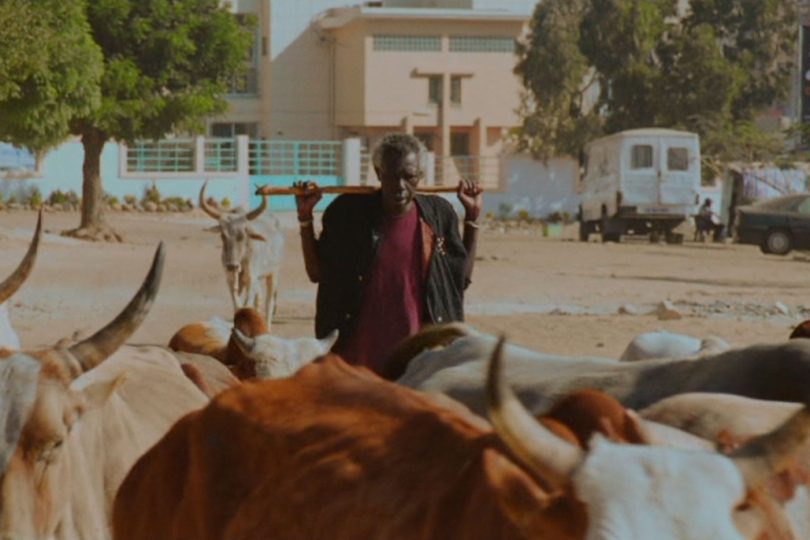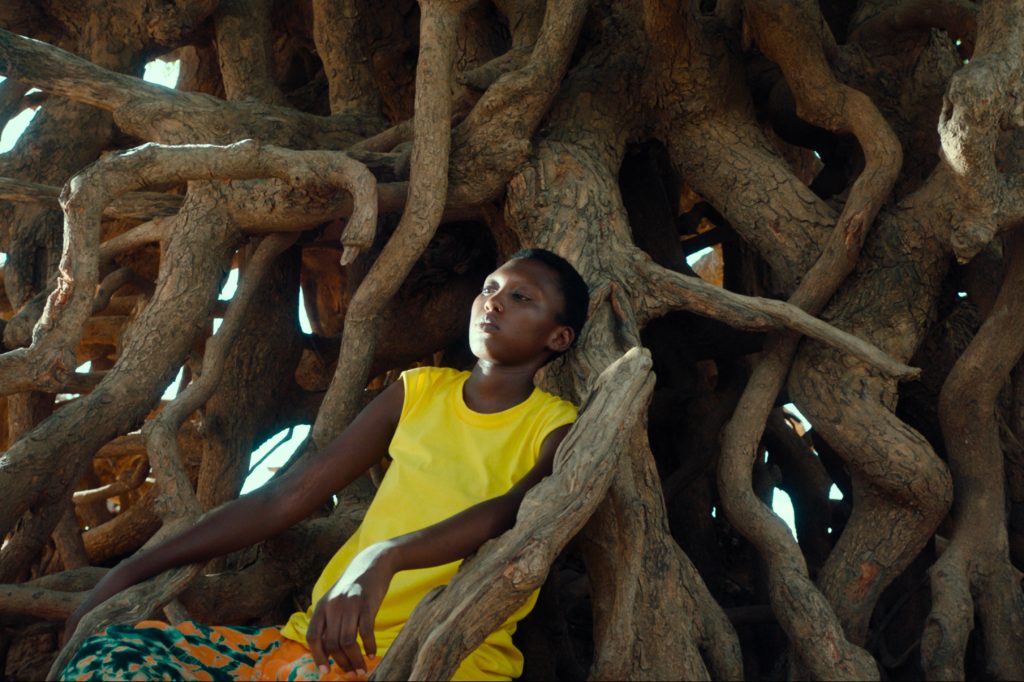On May 3-5, the screens of the cinema centers "Skalvija" in Vilnius and "Romuva" in Kaunas will briefly become windows to Senegal. The young film publishing company "Taip pelda" and the director Ramat-Toulaye Sy, who made her debut in the main competition of the Cannes Film Festival last year, will present here a co-curated film program "Taip pelda: to Senegal", which includes her own drama "Banelle and Adama", du Mati Diop the films "A Thousand Suns" and "Atlantes" and the classic of Senegalese cinema - Djibril Diop Mambéty's "Touki bouki".
It was Ramata-Toulaye Sy's debut film, a love story from Senegal, Banelė ir Adama, that became the starting point of the program. For her debut film, the France-based director and screenwriter returned to her parents' home village in Senegal's northern Futa region, where she often spent time growing up. Infused with magical realism, the story of Banele's rebellion, desire for freedom and love leading to madness became part of a new wave of African-born directors exploring genre cinema. Moving away from social realism, the director creates "Romeo and Juliet" reminiscent of a mythical love story. "I didn't grow up in Senegal, so I wouldn't dare to talk about the situation of women there or about any other phenomenon of Senegalese society. That was not my intention. The mythological level of the main character was important to me, I created her as Phaedra or Medea," says Sy about the idea of his film.

Banelė ir Adama was the only debut film in the competition program of last year's Cannes Film Festival, marking the year 2019 saw the debut of another young African film director, the French-Senegalese Mati Diop. Her ghostly love story "Atlantes" was awarded the Grand Jury Prize and became one of the brightest films of the year, but was never shown on the big screen in Lithuania. Like Ramata-Toulaye Sy, Diop uses fantasy and magical realism, but her films are far more political. Visually mesmerizing "Atlantes" touches on the painful subject of migration and shows its side invisible from a European perspective - the pain of loss experienced by women when men leave to pursue their dreams on the other side of the ocean. Having made only a few films, Mati Diop has already shown that she is one of the brightest voices in the world of cinema. In order to capture the sometimes difficult to explain African social reality, the director creatively combines documentary with fiction. This year at the Berlinale, Diop was awarded the "Golden Bear" for her latest film "Dahomey" about the XNUMXth century. the return to Benin of the ritual sculptures stolen by the colonists from the French art storage.

Migration and related dreams are also told in the debut film "Touki bouki" by Mati Diop's uncle, Senegalese film master Djibril Diop Mambéty, which premiered in 1973. also took place at the Cannes Film Festival. Wolof language touki bouki meaning "the journey of the hyena" is another story about love and the desire to escape. In this modernist masterpiece of postcolonial cinema, Mambéty satirizes African attachment to and romanticization of Europe. Lovers Mory and Anta long to sail to the Paris of their dreams, but face sometimes inexplicable obstacles. Witty, stylish and energetic, even after half a century, Touki Bouki still looks remarkably fresh and no less relevant.

"A Thousand Suns" continues and comments on "Touki bouki", which became a world cinema classic. in 2013 Mambéty's niece, Mati Diop, returned to Senegal to make a film about Touki bouki lead actor Magaye Niang forty years after he appeared on screen. "A Thousand Suns" is a sensitive portrait combining fact and fiction about a man who, like the character he played, did not leave his country. Formerly a star, today nobody recognizes Niang anymore. As he prepares to go to a special Touki bouki session in Dakar, he walks the streets of the city and reflects on his life here.

The films of the program "So on: to Senegal" are not only connected by magical vision, extraordinary visuals and the desire of the characters to break free, to leave, but also by the desire of the directors to tell Senegalese stories in a new way. This line creates a link between the visionary cinema of Mambéty at the beginning of the history of independent Senegalese cinema, and the young diaspora generation returning to the country to create now.
The look of the program "So on: to Senegal" will be extended later this year by a second film program - "So on: from Africa", which will follow the movement of people, ideas, stories from various African countries to other parts of the world. The centerpiece of the program will be Abderrahmane Sissak's film "Black Tea", presented in the competition program of the Berlin Film Festival this year, about Aya from the Ivory Coast rebuilding her life in China.
Both film programs are partially supported by the Lithuanian Cinema Center.

